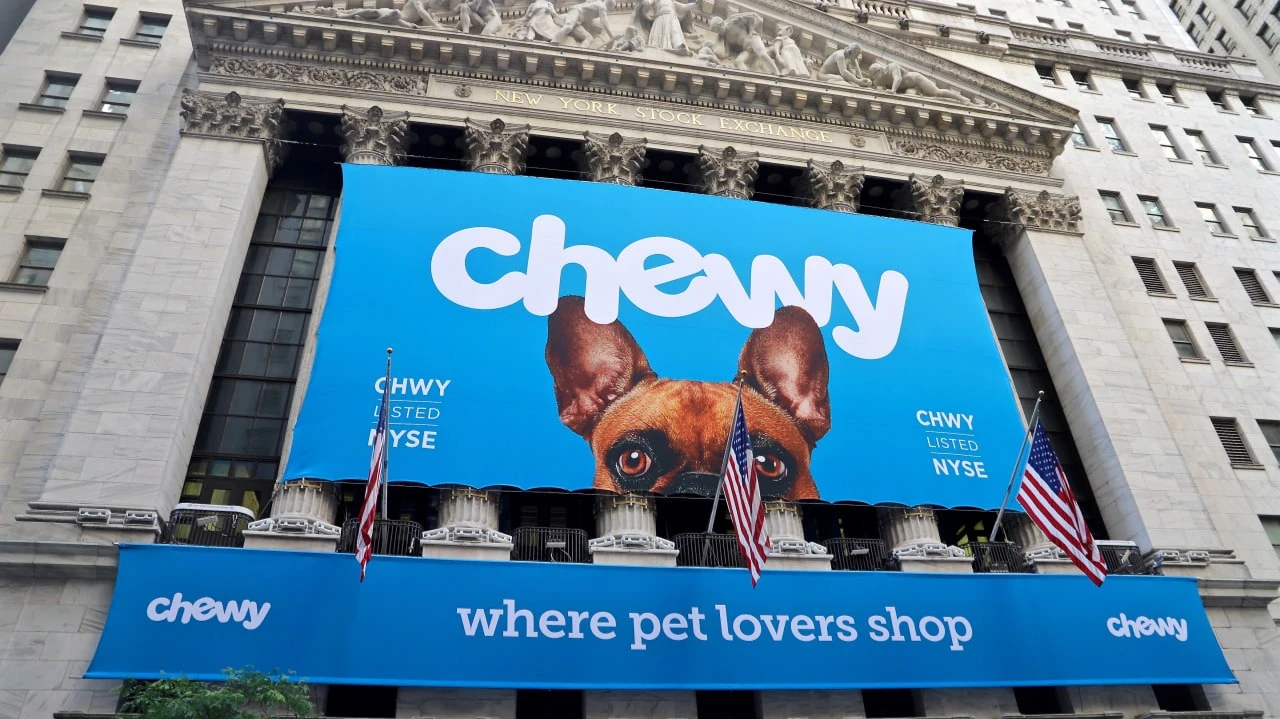Pandemic pets taken from shelters are aging out. Which company will capitalize on this?
Chewy is developing a chain of veterinary clinics and pet pharmacies, which will bring it additional revenue, according to BofA

Online retailer of pet products Chewy can significantly increase revenue by expanding its network of veterinary clinics and pharmacy segment, according to analysts of BofA. In their opinion, demand for these services will grow as pets, which Americans took from shelters en masse during the pandemic, age.
Details
Online pet retailer Chewy, which opened its first veterinary clinic just last year, could grow its pharmacy segment significantly in the coming years, according to analysts at Bank of America, an estimate published by MarketWatch.
Analysts said the expansion of veterinary clinics could bring Chewy as much as $1 billion in revenue over the next few years.
"We expect growth to accelerate between 2026 and 2027 due to a rebound in the trend of taking pets from shelters and animals taken in during the pandemic entering old age. Chewy is well positioned to capitalize on these developments thanks to its expanding network of veterinary clinics and leading position in pet pharmaceuticals," the research note said.
Chewy shares were up 0.7% at the open of trading on July 16. Since the beginning of the year, they have risen by 14%.
What are the analysts betting on?
According to BofA, Chewy now has 11 veterinary clinics. According to Google reviews, some users praise their state-of-the-art facilities, while others complain about high prices and diagnostic errors. Chewy management states that the clinics are performing better than expected.
BofA analysts also noted that Chewy is opening about 10 clinics a year and is likely to accelerate the pace of its network expansion.
Chewy's pharmacy business, with revenues estimated at about $1.1 billion, is the largest in the U.S. in the pet pharmaceutical segment. However, as BofA notes, Chewy has only 7% of the total market (last year it was valued at about $40 billion), and only about a quarter of Chewy's customers, they estimate, will use pharmacy services this year. The company's own target rate, meanwhile, is 40-50%. Still, if average spending on Chewy's pharmacy services remains at about $238 per customer, analysts believe the company's pharmacy services could bring in about $750 million in additional revenue if it achieves 40% customer coverage.
According to BofA, as pets age, their owners will spend more on medications, which will increase the average cost per client.
"We see upside potential: even a modest increase in spending in the Chewy Pharmacy segment of just $10 per customer could generate an additional $50 million for the company," the research note said.
According to the American Animal Products Manufacturers Association, cited by analysts, the market for veterinary services and pet pharmaceuticals will grow 4% this year and continue to expand thereafter.
Although the company's pharmacy business faces increasing competition, including from Amazon and other players, BofA analysts note that Chewy is already firmly integrated into the veterinary community.
"Chewy Pharmacy's product range is significantly larger than other companies' offerings, covering dogs, cats, horses, small animals, reptiles, fish and birds, and includes compounded medications for dogs, cats and horses," the research note said.
What are other analysts saying?
Analysts at BofA recommend buying shares of Chewy. They set the target price for the 12-month horizon at $49, which is 28% higher than the current level;
A total of 18 of 33 analysts (Buy and Overweight ratings) covering Chewy's shares are advising to buy. None are advising to sell. The average target price is 20% above the July 15 closing price.
Context
In recent years, the cost of keeping pets has risen significantly as private investment funds and large corporations have begun actively buying up veterinary clinics, consolidating the market.
Clinics also face rising costs for drugs, staffing, technology, and increased standards of care for animals.
According to a KPMG estimate cited by BofA analysts, about 30% of veterinary clinics in the U.S. are owned by private equity firms, another 20% are owned by corporations, and the remaining 50% are mostly independent private clinics.
This article was AI-translated and verified by a human editor
